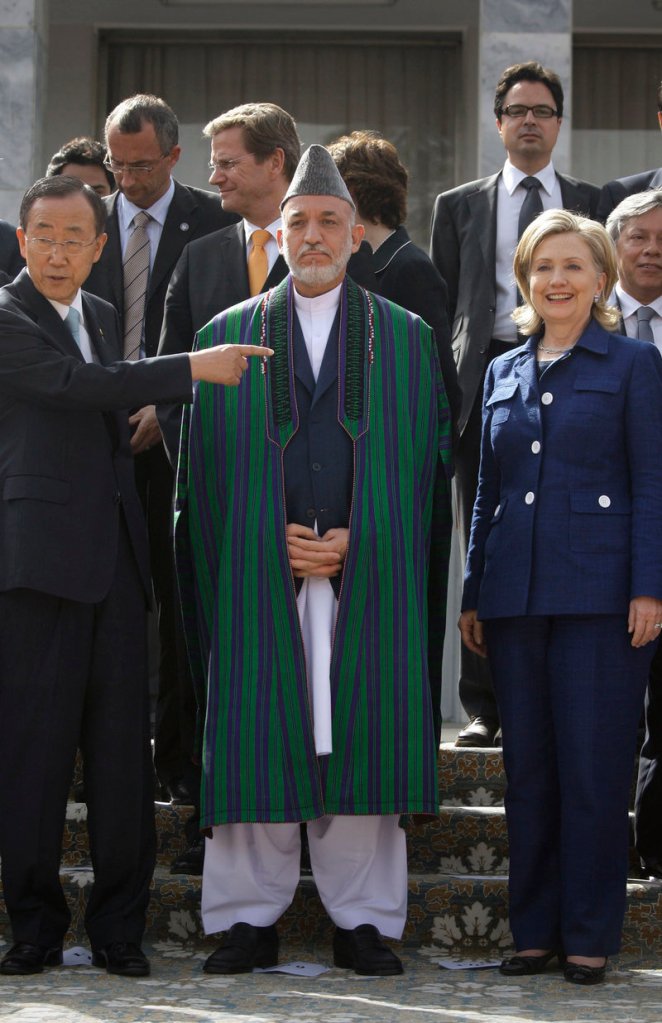KABUL, Afghanistan – The U.S. and its international partners agreed Tuesday on a plan for Afghan forces to take the lead in securing the nation by 2014 amid doubts that that they would meet the first goal — for the Afghans to assume control in certain areas by the end of the year.
At a one-day conference in a locked-down Afghan capital, President Hamid Karzai said he was determined that his soldiers and police will be responsible for all military and law enforcement operations by 2014.
“This is a national objective that we have to fulfill — and we must,” Karzai told reporters after the conference, which was attended by more than 40 foreign ministers and other officials, including U.N. Secretary-General Ban Ki-moon.
Talk of a 2014 date — which corresponds with the end of Karzai’s term — enables politicians to tell their war-weary publics that the war will not drag on indefinitely, draining resources at a time of economic hardship and rising death tolls.
It also sends a signal to the Afghans that the Western commitment to the country will extend beyond July 2011, when President Obama says he will begin withdrawing U.S. troops. Nonetheless, it leaves open the question of whether the Afghans will be ready to manage their affairs, even four years down the road.
The international community supported Karzai’s 2014 goal and endorsed a phased-in transition for Afghan policemen and soldiers to take the lead in the country’s 34 provinces.
“I can’t give you names of provinces, but our goal is to hand over lead responsibility to the Afghans when conditions permit,” NATO Secretary-General Anders Fogh Rasmussen said.
At a NATO meeting in Tallinn, Estonia, in April, Fogh Rasmussen was more specific, saying transition was likely to start before the end of the year.
“Our aims in 2010 are clear: to take the initiative against the insurgents, and to start handing over responsibility for Afghanistan to the Afghans this year,” Fogh Rasmussen said at the time. While officials at the conference insisted that transition was on track, there is concern that the Afghans are not ready and that details of the plan for handing over control of certain areas is still undecided. There also is political pressure from countries that would like to see Afghan security forces take charge in the areas where their troops are based so they can withdraw from the increasingly unpopular war.
Send questions/comments to the editors.



Success. Please wait for the page to reload. If the page does not reload within 5 seconds, please refresh the page.
Enter your email and password to access comments.
Hi, to comment on stories you must . This profile is in addition to your subscription and website login.
Already have a commenting profile? .
Invalid username/password.
Please check your email to confirm and complete your registration.
Only subscribers are eligible to post comments. Please subscribe or login first for digital access. Here’s why.
Use the form below to reset your password. When you've submitted your account email, we will send an email with a reset code.